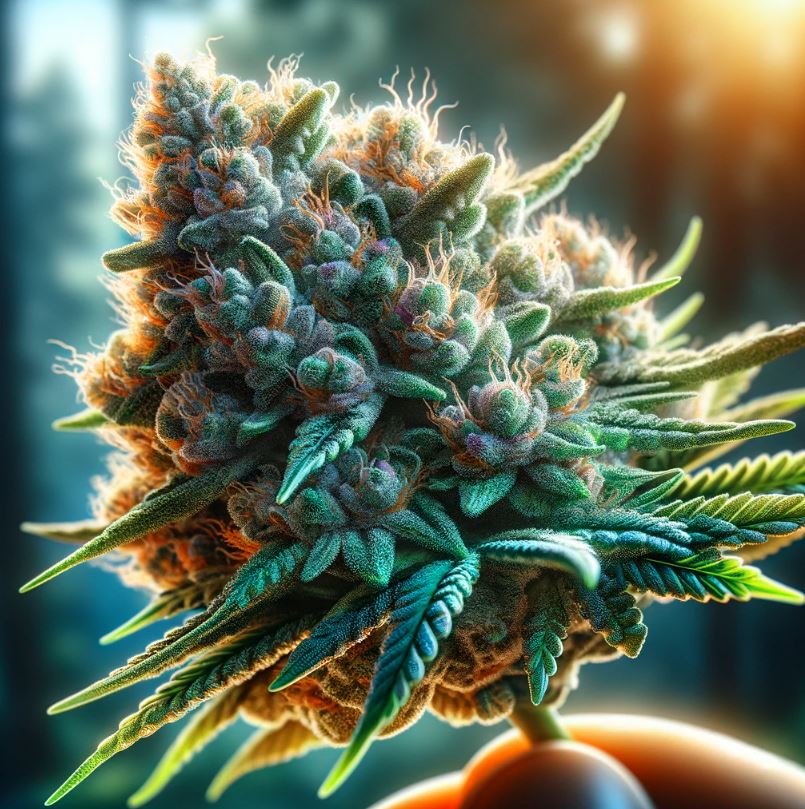Like two sides of the same coin, cannabis and Delta 10 have sparked intense discussions and debates within the scientific and consumer communities. I’ve noticed that there’s a lot of gray area when it comes to differentiating these two substances.
Are they really as different as chalk and cheese, or are we dealing with subtle variations of the same theme? Let’s puncture the cloud of uncertainty and illuminate the facts, because only then can we make informed decisions.
Stay with me, and you might just find the answer you’re looking for!
Understanding Cannabis Basics
To fully grasp the nuances between Cannabis and Delta 10, it’s crucial to first understand the basic principles of Cannabis, a complex plant with a rich biochemical composition. As an integral part of Cannabis Cultivation, I’ve come to appreciate the plant’s diverse offerings.
https://www.youtube.com/watch?v=YuWxJsm-TEo&pp=ygUUY2FubmFiaXMgdnMgZGVsdGEgMTA%3D
Cannabis features a plethora of strain varieties, each with its unique properties and characteristics. These strains range from Indica, known for its relaxing effects, to Sativa, celebrated for its energizing influence, and even hybrids that blend these effects. Each strain’s distinct qualities are a result of varied concentrations of cannabinoids, terpenes, and flavonoids.
It’s these chemical compositions that distinguish one strain from another, and understanding this is key to grasping the distinction between Cannabis and Delta 10.
Introduction to Delta 10
Delving into the realm of Delta 10, it’s essential to note that this is one of the hundreds of cannabinoids found in the cannabis plant, albeit in trace amounts, and its effects are still largely unexplored in scientific research.
Let’s delve deeper with these four key points:
- The Delta 10 origin is intriguing since it’s a naturally occurring compound but its quantities in the cannabis plant are minimal.
- Delta 10 extraction is a complex process, making it quite rare and less prevalent in the market.
- It’s thought to provide a subtle, clear-headed high, unlike its relatives Delta 8 and Delta 9.
- Its potential therapeutic benefits and side effects are yet to be fully understood.
This is just a glimpse into the fascinating world of Delta 10.
Chemical Composition Differences
Having explored the basics of Delta 10, we can now shift our focus to the chemical composition differences between this cannabinoid and other compounds found in the cannabis plant. Delta 10 and other cannabinoids like Delta 9 THC and CBD, vary in their terpene profiles and cannabinoid interactions.
For instance, let’s compare Delta 9 THC and Delta 10:
| Delta 9 THC | Delta 10 | |
|---|---|---|
| Terpene Profiles | Characterized by myrcene, limonene | Dominated by caryophyllene, limonene |
| Cannabinoid Interactions | Interacts mainly with CB1 receptors in the brain | Interacts with both CB1 and CB2 receptors |
This table shows Delta 9 THC is known for its interaction with CB1 receptors and a terpene profile rich in myrcene. Conversely, Delta 10 is distinct with its interaction with both CB1 and CB2 receptors and a terpene profile dominated by caryophyllene. Understanding these differences is crucial for their applications.
Effects on the Human Body
As we move forward in our exploration, I’ll compare and analyze the physical and psychological effects of Cannabis and Delta 10 on the human body.
I’m intrigued to examine how these two substances, despite their chemical similarities, might affect us differently.
From the intensity of the physical experience to the nuances of psychological impacts, we’re about to unfold some compelling scientific insights.
Physical Impact Comparison
When we examine the physical impact of Cannabis and Delta 10 on the human body, we find distinct differences in their effects.
- Cultural Perceptions: Cannabis, being more culturally recognized, is often associated with more severe physical effects. Delta 10, on the other hand, is perceived as a less impactful alternative.
- Usage Patterns: Frequent use of cannabis can lead to physical issues like bronchitis, while Delta 10, often vaporized, presents less respiratory risk.
- Onset and Duration: The effects of cannabis are typically immediate and short-lived, versus Delta 10’s slower onset and longer-lasting impact.
- Tolerance: Regular cannabis users can develop tolerance quickly, requiring more for the same effect. Delta 10 appears to have a slower tolerance build-up.
These factors contribute to the complex interplay between these two substances and their physical impacts.
Psychological Effect Analysis
Beyond the physical implications, it’s crucial to examine the psychological effects both cannabis and Delta 10 exert on the human psyche.
Cannabis is known to cause cognitive impacts such as impaired memory, difficulty in problem-solving and distorted perception. It can also lead to mood alterations including euphoria, anxiety or paranoia.
On the other hand, Delta 10 is reported to produce a more subtle, focused high, potentially causing less cognitive disruption. However, it can still cause mood alterations, typically a relaxed state rather than anxiety.
It’s vital to underline that individual reactions can vary based on factors like dosage, method of consumption, and personal tolerance. So, while both substances influence cognitive function and mood, their effects can be substantially different.
Medical Benefits Comparison
Now, I’d like to compare the medical benefits of both cannabis and Delta 10.
I’ll first analyze the health advantages associated with cannabis use, then transition into the health benefits derived from Delta 10.
Cannabis Medical Advantages
An extensive range of research has shown that traditional cannabis offers a plethora of medical benefits, including pain relief and anxiety reduction, which we’ll now compare to the emerging therapeutic uses of Delta 10.
- Therapeutic Applications: Cannabis has been utilized for centuries as a therapeutic agent. Beyond pain relief and anxiety reduction, it’s also shown efficacy in treating conditions like epilepsy and multiple sclerosis.
- Addiction Potential: While cannabis does have addictive potential, it’s significantly less than many prescription drugs, particularly opioids.
- Side Effects: Cannabis can cause side effects such as dry mouth and tiredness, but these are often minor compared to those of many prescription medications.
- Access: Medical cannabis is increasingly accessible, with many states now allowing its use for a range of conditions.
Delta 10 Health Benefits
While traditional cannabis has its vast range of medical benefits, Delta 10, a newer byproduct of the cannabis plant, is steadily gaining recognition for its own unique therapeutic properties. Consumed in several forms such as Delta 10 edibles and Delta 10 vaping, it is reported to provide relief from anxiety, pain, and insomnia.
Here’s a brief comparison:
| Consumption Method | Benefit | Why Delta 10? |
|---|---|---|
| Delta 10 edibles | Anxiety relief | Slower onset, longer-lasting relief |
| Delta 10 vaping | Pain relief | Quick onset of effects |
| Both | Insomnia relief | Options for immediate or prolonged relief |
Direct Comparative Analysis
Drawing a detailed parallel between traditional cannabis and Delta 10, we should consider the specific medical benefits each offers.
- Cannabis, cultivated through specific techniques, is known for its pain-relieving properties and can aid in controlling epileptic seizures.
- Delta 10, while less researched, shows promise in stimulating appetite and reducing anxiety.
- Social attitudes towards cannabis are more established, with acceptance increasing for its medical use.
- Delta 10, being newer, faces more skepticism, but this is gradually changing as more research is conducted.
This comparison doesn’t define one as superior. Each compound has unique benefits and potential drawbacks. As cultivation techniques evolve and social attitudes shift, our understanding and acceptance of both will continue to grow.
Potential Risks and Side Effects
Despite their potential benefits, both cannabis and Delta 10 carry certain risks and side effects that you should be aware of. The addiction potential varies between individuals, but both substances can lead to dependency, especially when used frequently or in high doses.
The withdrawal symptoms can be unpleasant, including restlessness, insomnia, and irritability. Some users may also experience physical symptoms such as nausea and sweating. Furthermore, while cannabis is known to cause short-term memory loss and altered judgement, Delta 10 might have similar effects, although more research is needed to confirm this.
It’s also important to note that the long-term health effects of Delta 10 are still largely unknown, making it crucial to approach its use with caution.
Legalities and Market Trends
Moving beyond the health implications, it’s equally essential to understand the legalities and market trends surrounding cannabis and Delta 10. Here are four key points to consider:
- Regulatory Challenges: The legal landscape for both substances is complex, with differing regulations across jurisdictions. It’s crucial to stay informed about the most recent laws and their implications.
- Market Predictions: Analysts anticipate significant growth in the cannabis and Delta 10 markets, driven by increased societal acceptance and potential medical applications.
- Competition: Both sectors are highly competitive, with numerous players vying for market share.
- Consumer Trends: Demand patterns shift as consumers become more knowledgeable about these products and their effects.
In essence, an understanding of legalities and market trends is vital for anyone involved in the cannabis or Delta 10 space.
Commonly Asked Questions of Cannabis Vs Delta 10
What Are the Potential Environmental Impacts of Growing Cannabis Vs Delta 10?
Growing either cannabis or delta 10, I’ve noticed both require significant energy and water resources. Yet, with efficient cultivation techniques, we can reduce environmental impact while maintaining high product quality.
How Does the Cost of Purchasing Cannabis Compare to Delta 10?
I’ve found that the cost differs greatly due to legal implications and therapeutic benefits. Typically, cannabis is more expensive than Delta 10, but it’s largely dependent on the quality, strain and where you’re purchasing from.
Are There Any Reported Cases of Addiction to Either Cannabis or Delta 10?
Yes, there are reported cases of addiction to both substances. Substance misuse patterns vary among individuals, making addiction treatment options diverse. It’s crucial to understand these factors for better prevention and intervention strategies.
What Is the Public Perception of Cannabis Vs Delta 10?
Public opinion varies greatly, but it’s clear that legal implications influence perceptions. I’ve noticed a growing acceptance for cannabis, while Delta 10, a lesser-known compound, is still misunderstood and viewed with more skepticism.
Can Cannabis and Delta 10 Be Used in Conjunction With Other Medications or Substances?
Yes, I believe both cannabis and delta 10 can work in tandem with other substances, but careful dosage management is vital to optimize therapeutic effects and avoid potential adverse reactions.
The TLDR
In sum, while both cannabis and Delta 10 share common roots, they differ significantly in their chemical composition, effects, benefits, and potential risks. It’s crucial to note that while they both offer unique therapeutic benefits, their side effects shouldn’t be ignored.
Legalities surrounding them are ever-evolving, influencing market trends. As the science around them advances, so too must our understanding, enabling more informed decision-making when considering these substances.

Daniel Levinson – Cannabis Biz Dev Consultant
10 years of cannabis biz dev and marketing experience. Consultant to many leading cannabis brands and startups.

